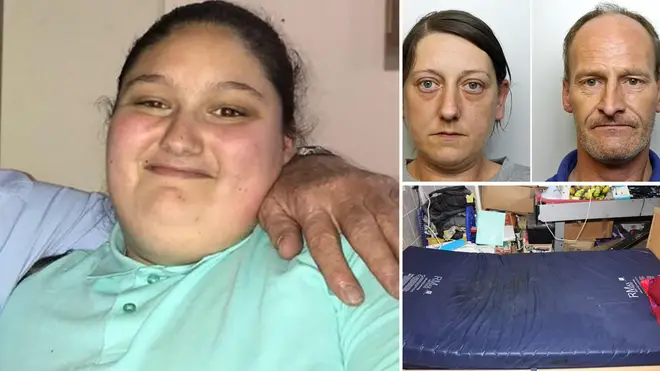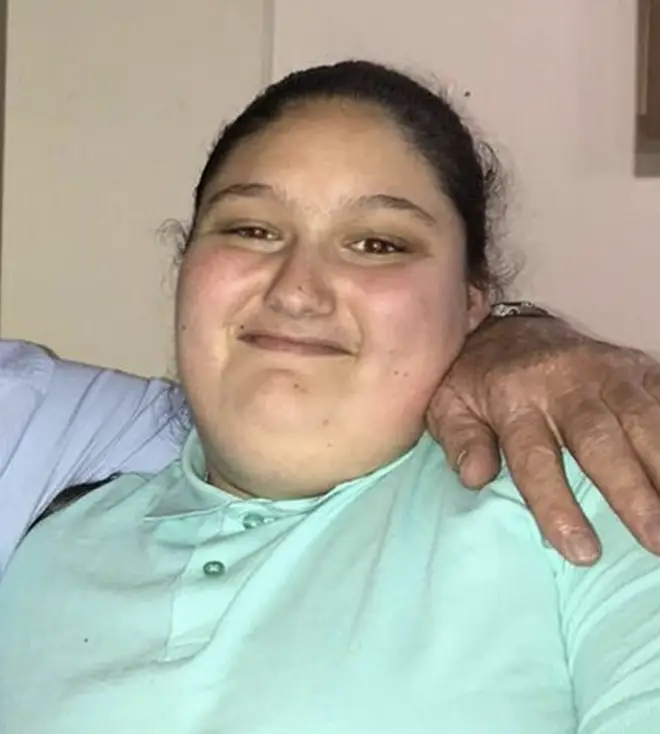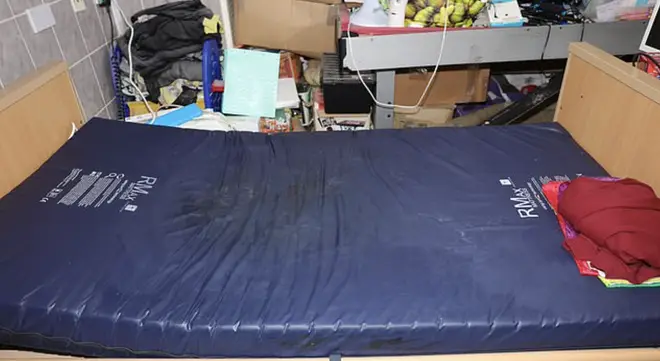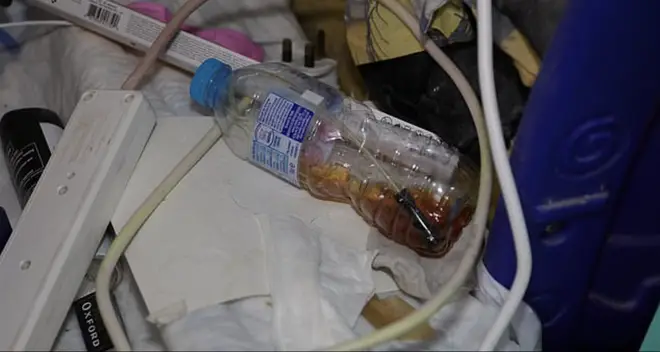
Paul Brand 10am - 12pm
14 March 2024, 17:53 | Updated: 14 March 2024, 18:07

After a disabled 16-year-old girl died at the hands of her parents, a report has found multiple failures that allowed the teen to die weighing nearly 23 stone and in squalid conditions.
Kaylea Titford, who suffered from spina bifida, was found dead at her home in Newtown, Powys, in October 2020 after her parents repeatedly failed to get help even when it was offered, as her father said he was "lazy" and left care to the mother, who said she was overwhelmed.
Kaylea weighed 22st 13lb at the time of her death and her body was discovered covered in maggots in her bedroom in conditions described as "unfit for any animal."
Now, a child practice review released today found that there had been an opportunity for her teachers to see how Kaylea was during the pandemic.
However, this opportunity was missed in July 2020 when her parents, Alun Titford and Sarah Lloyd-Jones, did not attend a meeting over Microsoft Teams.

The family "experienced issues" using the software and Newtown High School, where Kaylea attended, “could have offered support to set this up to ensure visual contact was made," the report said.
Whilst the teenager, referred to as Child A in the report, was not expected to return to the classroom until September, it meant that no one from the school had “eyes” on her for over six months.
The other "missed opportunity" to see how Kaylea "presented" happened in May.
In the fifth month of the year, a virtual appointment with a hospital urologist happened on the phone, instead of online.
"That was the last recorded interaction with a health agency before Child A's death," the report added.
Dr Donna Peach carried out the review on behalf of the Mid and West Wales Regional Safeguarding Board.
She said: “At the time of her death, Child A had been socially isolated for six months per governmental guidance to reduce transmission of the COVID-19 virus.
"Child A was worried about the virus, and her family was able to ensure she remained free from the virus.
"The nature of social isolation means we have a limited understanding of Child A's day-to-day experience during that time.
"However, the evidence of the way she died permits us to conclude the contributory impact of extended quarantine for Child A was multiple and complex, exacerbating her vulnerabilities and reducing the supportive infrastructure upon which she relied."

Father 'sick to the stomach' after Kaylea Titford's parents are jailed
The report also looked at Kaylea's multiple health problems, associated with her condition, and her suffering from hydrocephalus - a build-up of fluid on the brain.
She did not have a care and support plan, even though it is required by law, at the time of her death.
Healthcare professionals from the NHS and officials from a local council relied on each other and her parents to request services to assess the 16-year-old’s needs.
Not a single official or health professional had oversight of Kaylea’s care.
In just three years, Kaylea's weight rose from 17 stone to 23 stone, which was not reviewed or recorded in the two years before her death, according to the report.
The teen was described as "fiercely independent and a lovely, chatty girl", who attended school regularly until November 2019.
Her attendance dropped due to a leg infection and bullying.
When other children went back to school in September 2020, teachers called Lloyd-Jones but reports said she claimed her daughter was suffering from many health issues.
Kaylea was due to return on October 7 but was "too unwell and anxious" to return.
Three days later, 16-year-old Kaylea was found dead.
In court, evidence shows how her parents spent over £1,000 on takeaways and fizzy drinks before Kaylea died.
Her mobility problems left her stuck in her squalor and was unable to get up and help herself despite adaptations in the house, and she was bothered by flies as maggots ate away at her.


Mr Justice Griffiths, who sentenced her parents in court, said that Kaylea’s "suffering and degradation she experienced before she died was prolonged and significant", and despite having lost feeling in her lower limbs - where most of her ulcers had developed - "could see and smell her own filth".
Kaylea's parents, Alun Titford and Sarah Lloyd-Jones were given 13 years combined but this increased to 18 years in May 2023.
The judge rejected claims Kaylea had been let down by various agencies, and said her parents were aware help was available but regularly failed to take their daughter to appointments or access services, which was part of their "gross negligence" towards her.

However, Dr Peach identified nine actions that should be implemented by Powys County Council and Powys Teaching Health Board to learn from Kaylea's death and improve systems for the future.
These included rolling out her school's strengthened "eyes on" policy.
This ensures that if a child has not been seen for two weeks a teacher can visit their home or alert the relevant safeguarding agency, to other schools in the local area, as well as making sure children with complex disabilities have their care and needs overseen by a single agency or health practitioner.
In a joint statement following the review’s publication, Powys County Council, Powys Teaching Health Board and Dyfed Powys Police, who investigated Kaylea's death, said: 'We convey our sincere condolences to the child's family and all those who have been affected by this tragic death.
"The review has been an opportunity to reflect and share learning amongst all partner organisations and practitioners on a multi-agency basis, and we acknowledge the commitment and contribution of those who have taken part in the review process.
"We hope that the report will contribute to wider ongoing learning in relation to a number of key issues identified in the report so that children and their families are supported fully."